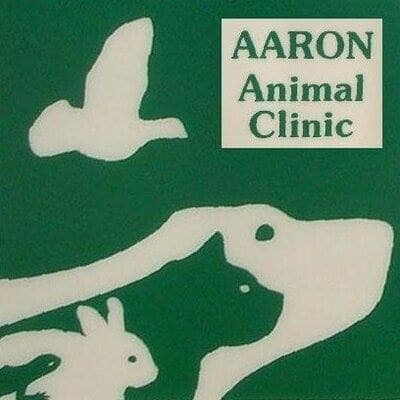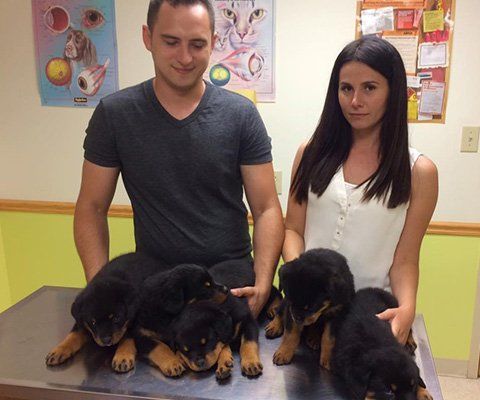VACCINATIONS
Many serious infectious diseases of cats and dogs can be controlled by vaccination. With over 20 million pet cats and 50 million dogs in the U.S., your pet is quite likely to come in contact with an infectious disease at one time or another. Even indoor pets can be exposed to viral infections carried in the air, in the dust, or on clothing. Vaccination is inexpensive protection against costly treatment or even the premature death of your dog or cat! Call Aaron Animal Clinic to get more information at 216-901-9980.
RABIES VACCINATION
Rabies is a fatal infection and public health hazard and a personal risk to all pet owners. Many states require vaccination against rabies, and most veterinarians recommend vaccination for all dogs and cats, regardless of state law. Rabies can be transmitted through the bite of an infected animal. Even dogs kept indoors can come in contact with a rabies carrier in a basement, garage, or attic. Because there is no cure for rabies, vaccination is your pet's only protection.
FELINE VACCINATION
- Feline Panleukopenia, also known as "cat distemper," is a highly contagious and often fatal disease in young cats. It is easily transmitted from cat to cat.
- Feline Respiratory Diseases include several different infectious agents. They are all highly contagious and are widespread. High death rates occur in young cats and "old" cats. Upper respiratory infections are easily spread from cat to cat by sneezing, etc. Even a stray cat that seems outwardly to be healthy may be a "carrier" infecting your pet, even though a screen window.
- Feline Leukemia was unknown 20 years ago but is now considered to be the leading cause of death in cats. It is a cancer-causing virus that often suppresses the ability to fight other infections. Kittens can be born with the virus. Cats can have the leukemia virus for years before showing signs of the disease. Feline Leukemia is not transmissible to humans or dogs. There is no successful treatment once symptoms develop!
- Feline Bordetella is a highly contagious bacteria that causes upper respiratory infection, which can lead to pneumonia and even death. Cats that have a strong potential for exposure to this infection are cats that came from shelters, wandered up to your house, if your cat will be allowed outside, taken to a groomer, boarded at a kennel, or if you have a multi-cat household.
CANINE VACCINATION
- Canine Distemper is very widespread, and nearly every dog will be exposed to distemper within the first year of life. Once the virus enters the nervous system, convulsions, twitches, or partial paralysis become evident. It is spread through all body secretions and is HIGHLY contagious.
- Parvo is transmitted through direct contact with an infected dog's feces. A dog that recovers from the disease remains a "carrier," spreading the virus in its bowel movements for 1-3 months. Signs include vomiting, fever, depression, and diarrhea (which often will contain large amounts of blood.) The younger the pet, the GREATER the chance of death. Dogs remain susceptible to Parvovirus infection until two weeks after the last injection in the vaccination series. This is the MOST SERIOUS and FATAL disease we see today.
- Infectious Canine Hepatitis affects the dog's liver. Spread through an infected dog's urine, exposure can mean anything from a mild infection to death. Puppies are at the most risk with this disease. Vaccination has controlled this disease for several years, making it rarely seen by the veterinarian today.
- Canine Cough Complex (kennel cough or Bordetella), technically known as "tracheobronchitis," it is an upper respiratory infection with the significant sign being a persistent, dry, hacking cough. It often lasts for several weeks and is HIGHLY CONTAGIOUS.
- Lyme disease is a debilitating disease that affects the musculoskeletal system as well as other vital systems of the body. Lyme is spread by the attachment of infected ticks on an animal. Pets that are most at risk are dogs that walk in wooded and tall grassy areas or travel in places where wild animals frequent.
QUICK LINKS
CONTACT DETAILS
Address: 7640 Broadview Parma, Ohio 44134
Phone: (216) 901-9980
Email: srahman626@sbcglobal.net


BUSINESS HOURS
- Mon - Thu
- - -
- Friday
- - -
- Saturday
- -
- Sunday
- Closed

